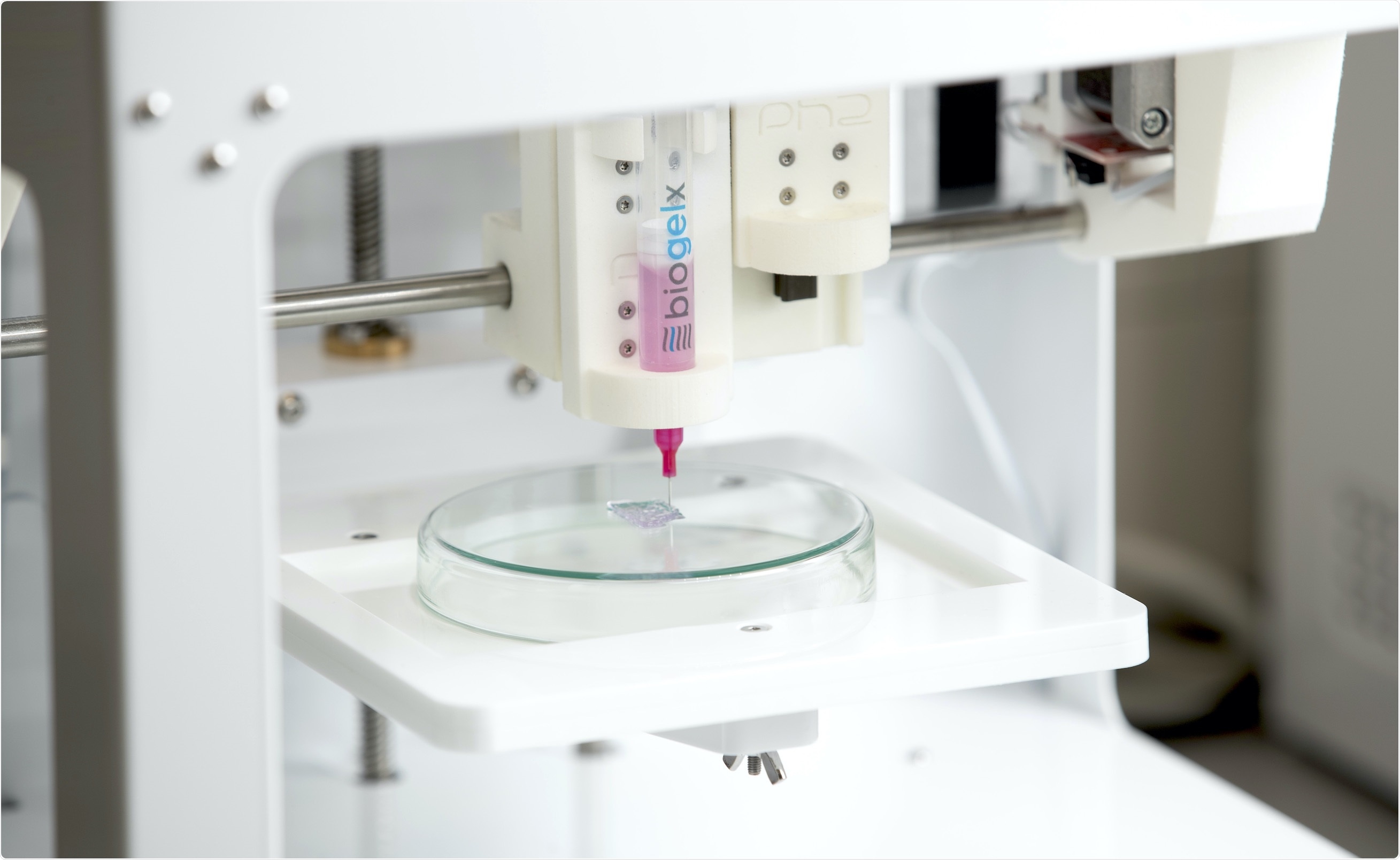Nov 27 2020
Biogelx, a Scottish biomaterials company focusing on developing peptide-based hydrogels and bioinks, today announced the creation of its Scientific Advisory Board to provide scientific review and guidance to the company regarding research and development.

Image Credit: Biogelx
The team met for the first time on the 19th of November to discuss the current status and to outline the scientific and commercial direction for the company in the next 12-18 months.
The Scientific Advisory Board (SAB) has members from high-ranking research institutes such as the University of Glasgow and City University of New York. The SAB will be chaired by Biogelx CEO, Alison Clayton, who has over 25 years’ experience in the industry, gaining experiences at businesses such as Quintiles, Aptuit, and Eurofins, before joining Biogelx in March 2020.
I am excited to be joined in the Scientific Advisory Board by such distinguished and brilliant experts in their fields, who have joined in order to provide input and insight to Biogelx’s research and development strategy moving forward. I have no doubt that this group will open new exciting product development opportunities for the company.”
Alison Clayton, CEO
“It is important that we have members with a broad range of experience and expertise in order to provide insight from all angles”
The members of Biogelx’s Scientific Advisory Board are:
- Dr. Alison Clayton: Chief Executive Officer at Biogelx.
- Prof Rein Ulijn: Biogelx Founder and Board Member, Director of Nanoscience at City University of New York (CUNY) Advanced Science Research Centre.
- Dr. Mhairi Rodgers: Head of Operations at Biogelx.
- Paul Smith: Chief Executive Officer at BioAscent. Senior Executive with both General Management and Business Development experience in the pharmaceutical/CRO arena.
- Prof Matthew Dalby: Professor of Cell Engineering and Co-Director of the Centre for the Cellular Microenvironment at the University of Glasgow, Director of the EPSRC/SFI lifETIME Centre for Doctoral Training.
- Dr. Manuel Salmeron-Sanchez: Professor of Biomedical Engineering and Co-Director of the Centre for the Cellular Microenvironment at the University of Glasgow.
About Biogelx
Biogelx was formed as a spin-out company Professor Rein Ulijn's lab at the University of Strathclyde. Biogelx™ self-assembling synthetic peptide products have rapidly gained a global reputation in the area of 3D cell culture for both Regenerative Medicines and Drug Discovery.
The materials’ unique ability to emulate specific physical properties of a wide range of different tissue types offer new opportunities for the development of tailored 3D models for biomedical and pharmaceutical applications. Building on the success of Biogelx™ core technology, the company designed and developed a novel bioink product family (Biogelx™-INKs) which opens the opportunity for the development of advanced three-dimensional tissue models.
These hydrogel-based inks are biocompatible and easily printable, exhibiting excellent shear-thinning properties, which reduce the stress experienced by cells when subjected to the printing process. However, the key differentiator of these bioinks is the unique mix of their properties, which ensure versatility and consistency for bioprinting applications.